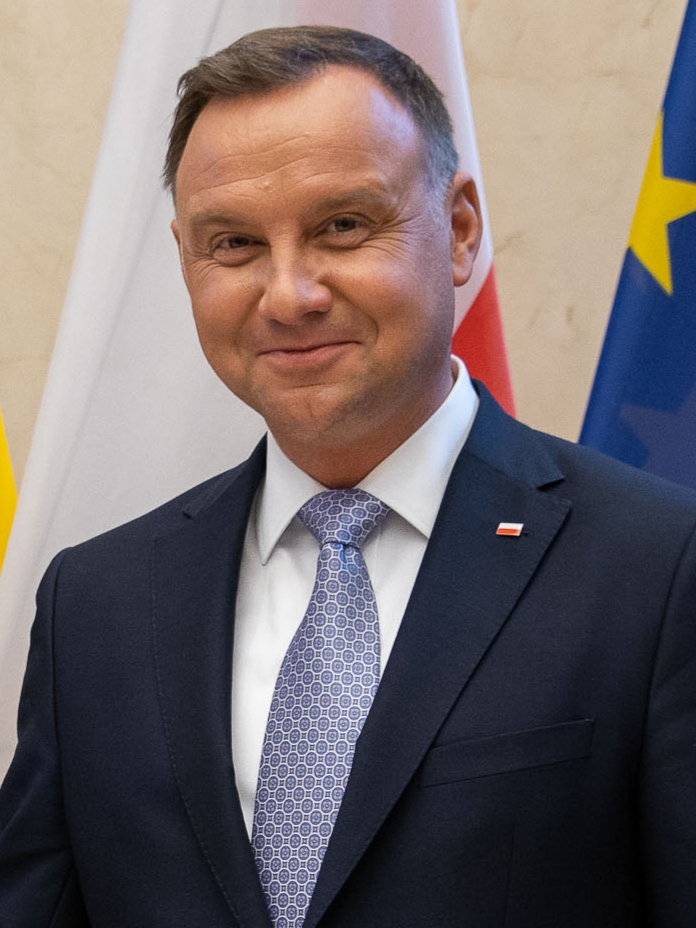Numerous Jewish-owned properties in central and eastern Europe that were expropriated by the Nazis and Communist governments have yet to be returned to their rightful owners, as a recent U.S. State Department report lamentably confirms.
Contrary to the Terezin Declaration, a non-binding document signed by 47 countries in 2009, Holocaust survivors and their heirs are still waiting for a just and timely resolution of this vexing issue.
“Much time has passed, and the need for action is urgent,” U.S. Secretary Mike Pompeo said after releasing the report late last month. “As we mark the 75th anniversary of the end of the Holocaust, the legacy of the Nazis’ mass looting remains in too many places and largely unaddressed. Given the advanced age of Holocaust survivors, many of whom live in poverty, the findings of this report serve as a reminder that countries must act with a greater sense of urgency to provide restitution for the property wrongfully seized …”

Poland, in particular, has failed to live up to its obligations under the Terezin Declaration.
Seven decades after the liberation of the Auschwitz-Birkenau concentration camp, and 30 years after the fall of the Berlin Wall and the collapse of communism, eligible Jewish families whose properties were plundered are still waiting for Poland to do the right thing.
Poland is in a special category for obvious reasons. With a pre-war Jewish population of 3.3 million, Poland was home to the largest Jewish community in Europe. Within a six-year period, Nazi Germany succeeded in wiping out 90 percent of it in scores of sealed ghettos and six extermination camps.
After the war, the new Communist regime nationalized tens of thousands of private properties, failing to compensate their Jewish, and non-Jewish, proprietors.
During the 1990s, a succession of democratic Polish governments began the lengthy process of returning communal property to the much-reduced Jewish community in Poland. But no provisions were made to return private property, with the result that Poland is “the only European member state with significant Holocaust-era property issues” still pending, as the U.S. report indicates.
It points out that the Polish court system has been less than helpful in assisting claimants: “the processes required to reclaim their private real property through (it) or through settlements with the national or local governments are lengthy, cumbersome, costly, and largely ineffective.”
The report states that “bureaucracy, weak political will, and related issues” have hindered a resolution of the problem. “In Poland, approximately half of the 5,500 Jewish communal property claims filed under a 1997 restitution law remain unresolved, and approximately half of the adjudicated claims were rejected.”
The report adds that Poland has not passed a law to address the “significant amount of private property left heirless by the Holocaust. Instead, heirless property is governed by Polish inheritance law.”
And there is “no law in place covering the restitution of (Jewish) cultural and religious movable property.” In general, Polish cultural institutions do not conduct provenance research, and when they have done so in a few cases, the findings have not been publicized.
The report recommends the passage of “comprehensive legislation to provide restitution of, or compensation for, private property.” It also urges Poland to create a dedicated claims mechanism outside the court system.
The World Jewish Restitution Organization has lauded the report as “a powerful statement” by the United States in support of Holocaust survivors and their heirs.
“Even in these hard times, countries should live up to their pledges to address the material wrongs of the Holocaust while the remaining survivors are still alive,” said the chairman of operations for the World Jewish Restitution Organization, Gideon Taylor.
Yet the current Polish government stands firm in rejecting a fair solution of an issue that should have been settled long ago.

During the recent election campaign in Poland, Polish President Andrzej Duda rejected that approach, claiming that Germany was responsible for compensating Holocaust survivors for their losses.
Duda went one step further, shamelessly accusing his liberal opponent, Rafal Trzaskowski, of being eager to sell out Polish interests to an “international lobby.” We all know what this coded phrase means.

The United States should apply pressure on Poland to pass binding restitution legislation. As U.S. Senator Marco Rubio succinctly put it, “Restitution … is long overdue. We must continue to press our friends and allies in Europe and ensure survivors are provided the justice they deserve and are able to live out their lives in dignity.”
Is Poland is listening?
